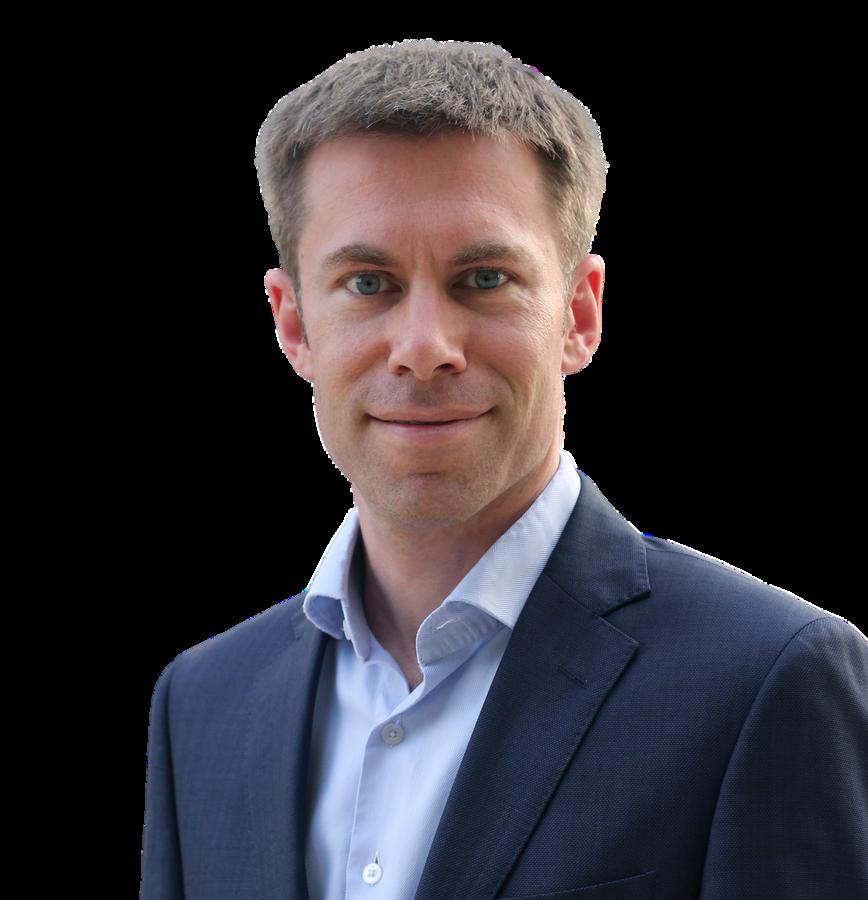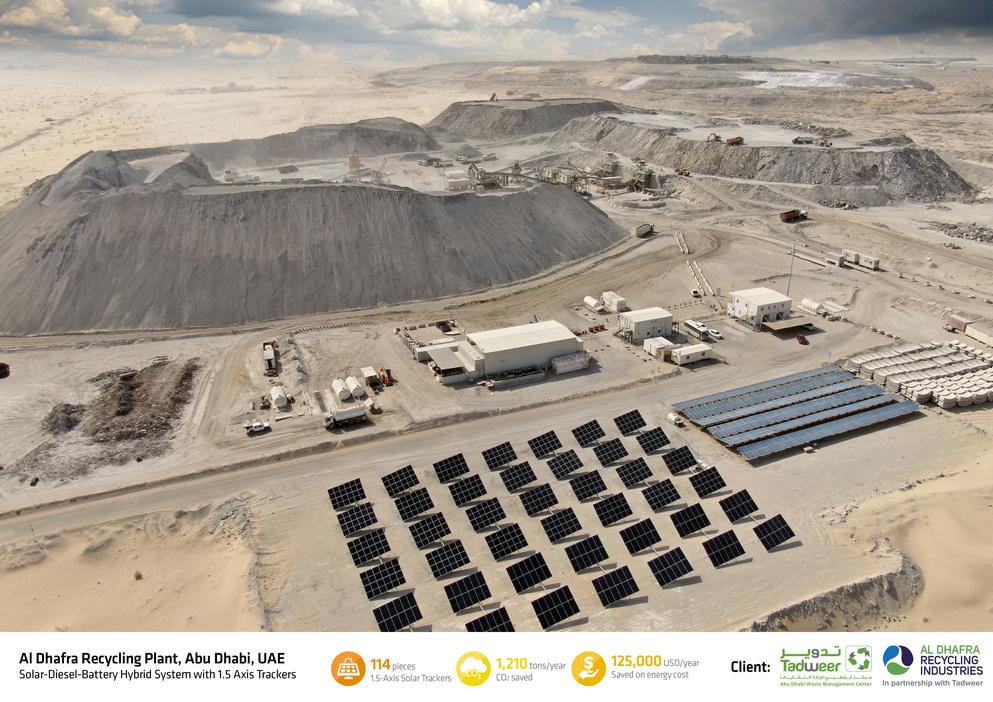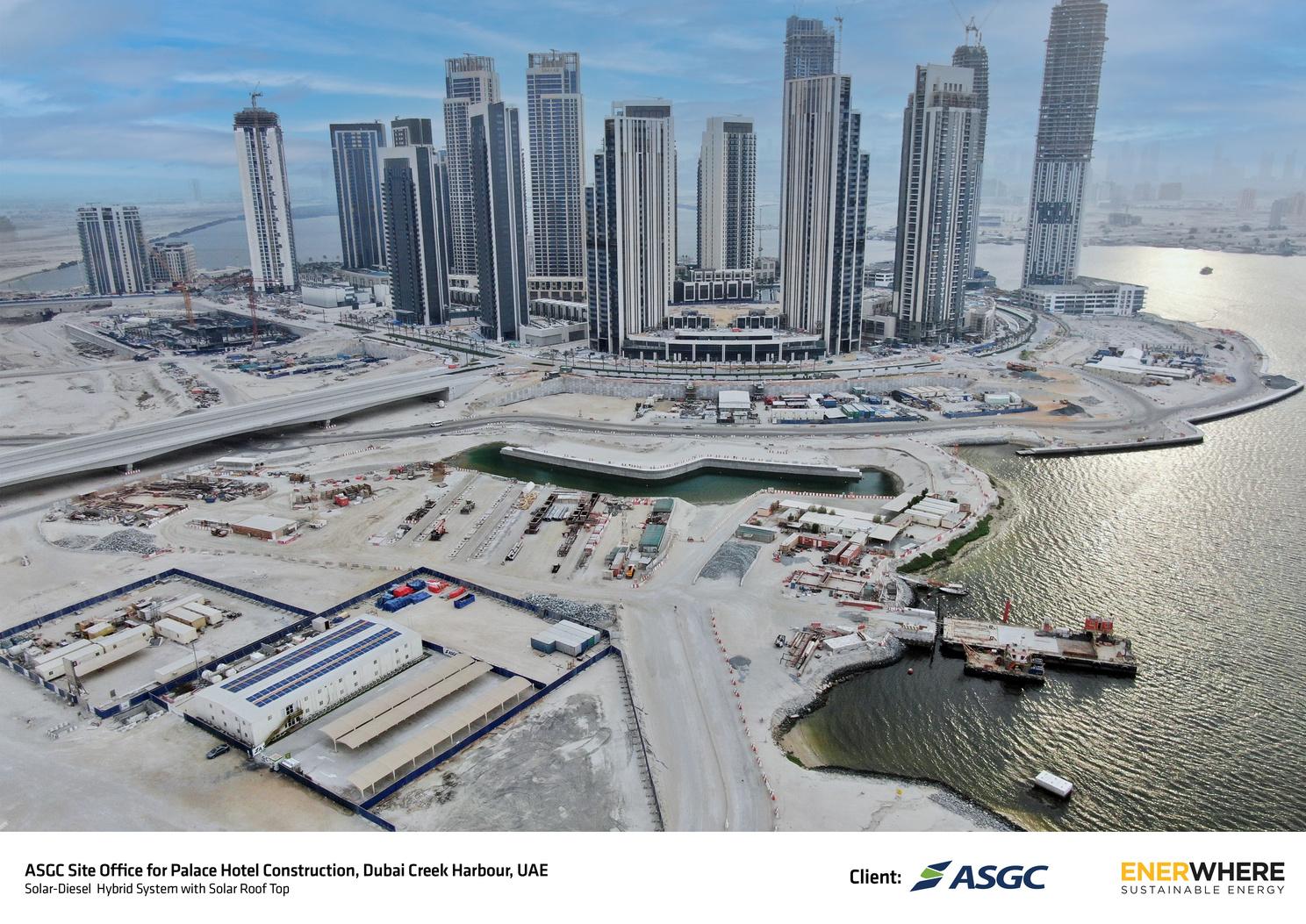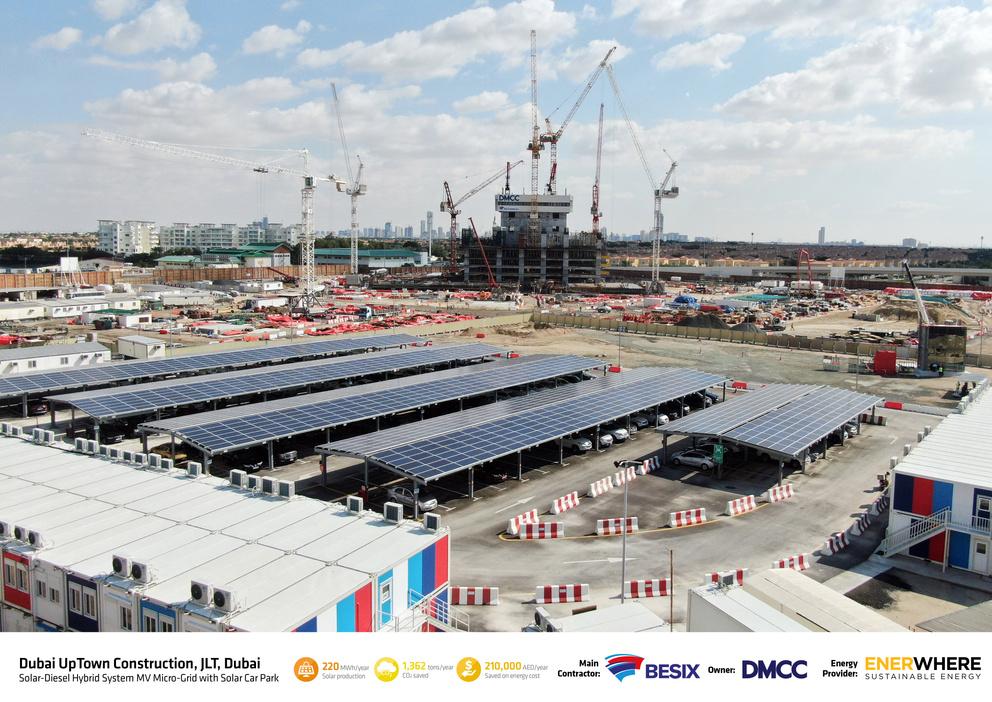
5 minute read
DanielZywietz
Founder & CEO, Enerwhere
Key Highlights
Advertisement
Our strategy from the beginning was to develop a set of digital and hardware solutions that allows us to assess a client’s load and deploy equipment very rapidly (typically in a few weeks) rather than the months or even years it takes to design, finance and deploy a conventional grid-connected solar system
The potential is very significant, as there are several GW of diesel generators operating across the Middle East with the market share of solar-hybrid systems still being below 1%
Enerwhere was one of the early pioneers of using renewable energy in the temporary power sector – we built our first off-grid solar plant in the UAE in 2014, when everything else was still running on 100% diesel
QHow has Enerwhere carved itself a significant place for itself in the Middle East solar market? What distinguishes Enerwhere from other businesses in the sector?
To start with it’s maybe worth mentioning we don’t really see ourselves as a solar company but a distributed full-service utility, with around 30 operating micro-grids across the Middle East. Most of our customers are in the construction, hospitality, mining and oil & gas industries, and the reason they come to us is that they don’t have a reliable grid connection, which is the starting point for conventional solar companies Of course we use solar as much as we can but since our first responsibility is to supply power very quickly (sometimes within 1-2 weeks from contract signature), we also use other sources like diesel generators and batteries That said, Enerwhere was one of the early pioneers of using renewable energy in the temporary power sector – we built our first off-grid solar plant in the UAE in 2014, when everything else was still running on 100% diesel In fact, everyone back then told us that there was no way that our tiny solar plants could power their big industrial loads, so we had to start with very small contracts for camps and site offices to build references before moving on to the larger loads (like tower cranes, mines and oil rigs) that we are serving today What distinguishes Enerwhere from most solar companies is hence that we take responsibility for the client’s entire power supply not just the solar portion That means we manage the grid, and guarantee 100% reliability for the customer’s load not only during day but around the clock, 365 days per year This business model means we need a much broader power systems expertise than your average solar company as we also have to run diesel and gas generators, battery storage and the digital infrastructure to manage loads

QWhat are the main elements that have made Enerwhere's projects in the Middle East successful? Can you give some instances of successful projects and the effects they had?
The key features that make us successful is that we start by listening to our customers to figure out what the true energy requirement is. Most people who come to us have only a very rudimentary understanding of their needs, and they know even less about solar, so we spend a lot of time measuring client’s loads and understanding the operating patterns With that data we can then design an optimized microgrid system using our proprietary enlite data analytics platform, which typically results in diesel savings of 30-50% compared to an equivalent diesel plant Using these tools we have implemented over 75 successful systems including many landmark project like the world’s largest solar-powered construction site for the Dubai Uptown Tower development in Jumeirah Lakes Towers, as well as the first ultramobile solar plant for the oil & gas industry, which is currently powering a mobile camp in the Khazzan gas field in Oman
QWhat particular difficulties and factors, such as the harsh weather conditions, the legal system, and regional market dynamics, must be taken into account for solar projects in the Middle East? How does Enerwhere deal with these difficulties?
The weather conditions are clearly not easy, even though solar modules (which are typically encapsulated in glass and rated for 85°C) are the least of our problems The real issue are the power electronics, which have a much higher failure rate at 45°C and 90% humidity than in a dry European basement at 20°C Of course there are significant differences among manufacturers and models, so over the years we have developed a rigorous testing and maintenance regime so that today our reliability is very high The legal system has been also much less of a challenge in the off-grid market, as this area is very lightly regulated. That contrasts with some of the grid-connected markets, where changes in the rules by the utility company can have a significant impact on the market and sometimes on very short notice, making long-term planning difficult

The Middle East's off-grid sites may now get dependable and sustainable energy solutions from Enerwhere, a pioneer in solarhybrid power solutions Can you tell us more about this novel strategy and how it will affect the area?
The key challenge in many of these sites is that they are considered temporary, as either the site is not expected to operate for more than 2-3 years (e g construction sites) or is expected to receive a grid connection in the near future Our strategy from the beginning was to develop a set of digital and hardware solutions that allows us to assess a client’s load and deploy equipment very rapidly (typically in a few weeks) rather than the months or even years it takes to design, finance and deploy a conventional grid-connected solar system This means we enable entire industries like construction, mining, oil & gas and even events to make use of renewable energy that previously simply didn’t have this option Given that diesel generators are the dirtiest and most expensive form of power generation on the planet, this means we can make a significant impact with a typical 30-50% reduction in fuel consumption in a short-term project (using a solar-diesel hybrid) and even more in longer-term projects with where we can deploy batteries as well
QWhat possibilities do you see for off-grid solar projects in the Middle East in the future as the solar industry continues to develop? How well positioned is Enerwhere to take advantage of these chances?

The potential is very significant, as there are several GW of diesel generators operating across the Middle East with the market share of solar-hybrid systems still being below 1%. Given the increasing sustainability pressure on companies, particularly in the context of the upcoming COP28 climate change negotiations, we therefore see ourselves as very well-positioned to help companies decarbonize their operations quickly


QWhat are the long-term objectives and plans for the Middle East's solar market from Enerwhere? How do you intend to keep promoting innovation and improving the local energy landscape?
Our long-term vision is to completely remove diesel fuel from the temporary and off-grid power markets in the Middle East, using ever more renewables and enabled by digital solutions and storage For this we don’t just have to rely on solar by the way (even if this is by far the most ubiquitous source of energy in the Middle East) A number of countries like Oman, Saudi Arabia, Kuwait and Iraq also have excellent wind resources, which can help increase the share of renewable energy in our grids without requiring huge batteries At the same time our systems are becoming ever more mobile, allowing us to serve clients with shorter contract durations (in some cases now as short as a few months), which is really unique in the solar industry So lots of potential to grow renewables and reduce carbon emissions in the region – and we are excited to be at the forefront of this revolution!






